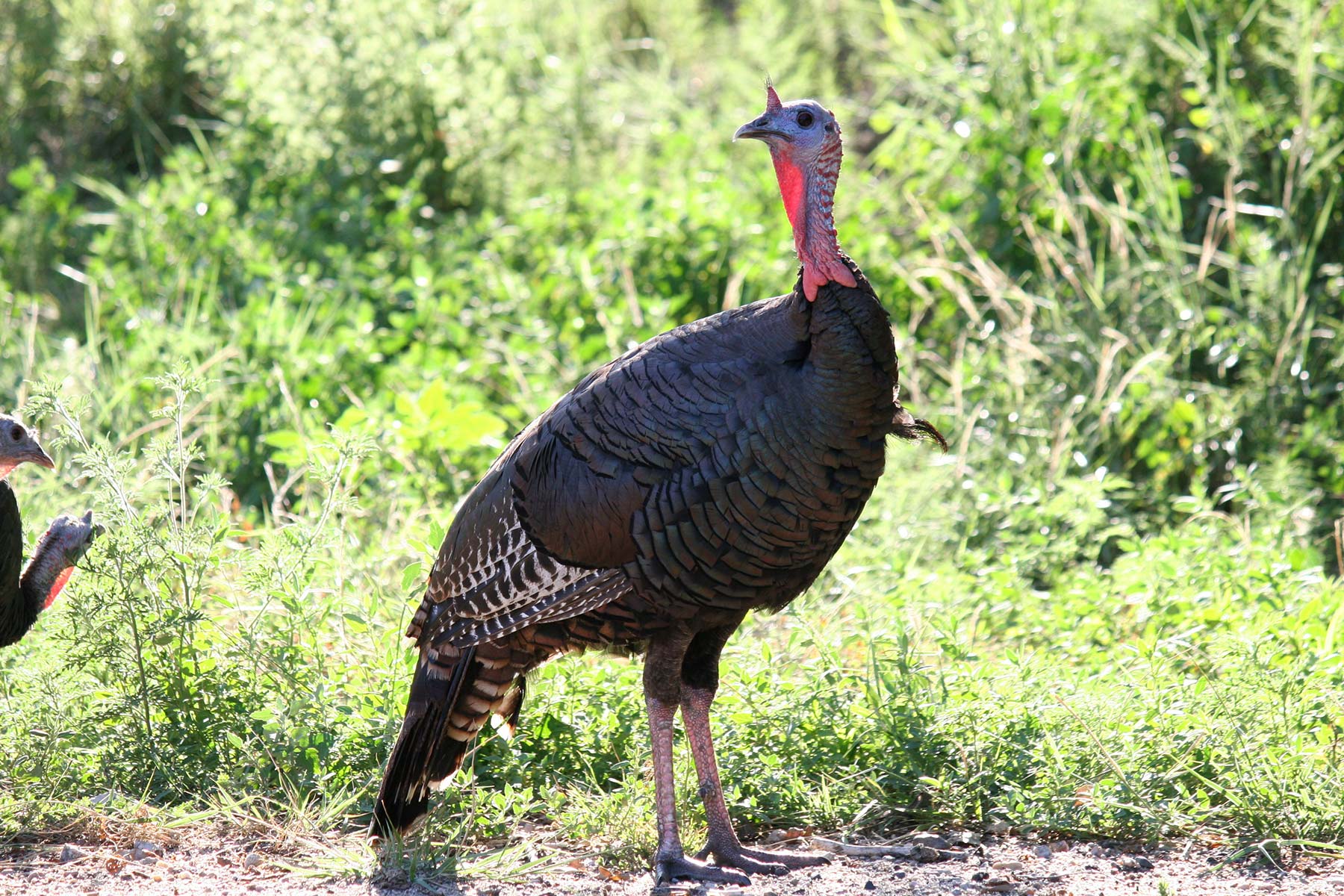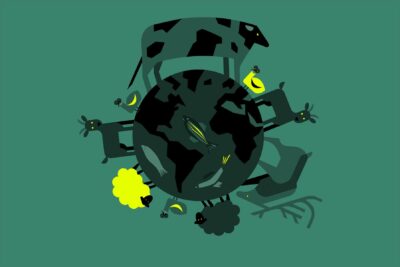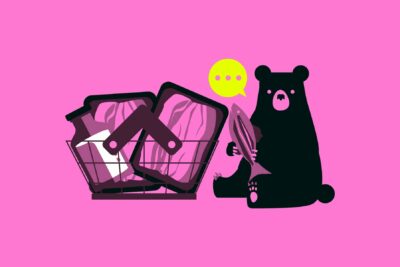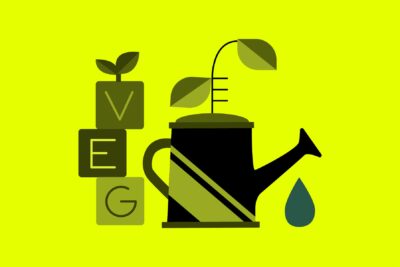It’s strange how often we hear these two contradictory arguments, and yet neither is true.
If the whole world was vegan, we would not be breeding animals in their billions, and if we don’t breed them, there is no chance we will be overrun! However, they will not go extinct either.
Farmed breeds are not natural. They were specifically created by people to have certain physical traits, such as large muscles or high milk yields, but these money-making traits also cause a lot of suffering. Commercial breeds of turkeys and broiler chickens, for example, are bred to put on a lot of weight as quickly as possible and, as a result, their joints are painful, their hearts are weak, and they are prone to bone breakages. It is right that these poor creatures are not bred to suffer this way, but that wouldn’t be the end of poultry. There are still wild species of fowl living freely, as well as others who have become feral, which is to say that they were once captive, but have successfully returned to the wild.

Dairy cows have been genetically bred to have a high milk yield, but this means they suffer from increased leg and metabolic problems. On farms, they are repeatedly impregnated and suffer the emotional toll of having their calves taken away from them. By the time they are six, most are considered “spent”—they are lame, exhausted, or have become infertile—and are slaughtered. It is right that these poor creatures no longer exist purely to suffer. Besides, there are wild bovines, including bison and buffalo, and so bovines will not become extinct.
The natural wild cousins of all farmed species—including ducks, geese, boar, goats, and sheep—will continue to live freely and, without the meat industry destroying natural habitats to create more farmland, these species would flourish in a rewilded world.
As for the specific breeds of farmed animals themselves, they wouldn’t die out entirely. Some would remain in sanctuaries or be cared for by individuals. After all, we don’t eat dogs and cats in America, and there are still plenty of them in loving homes.



